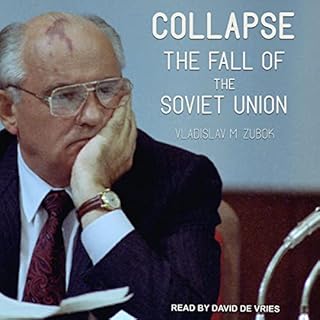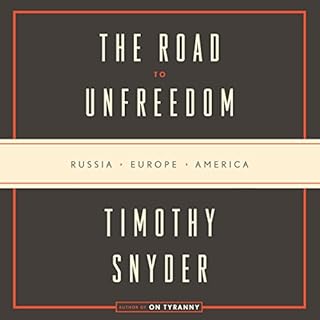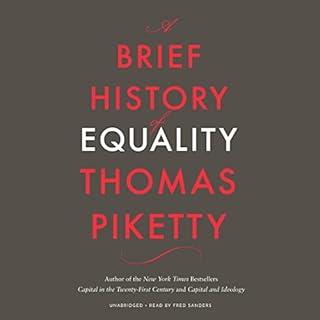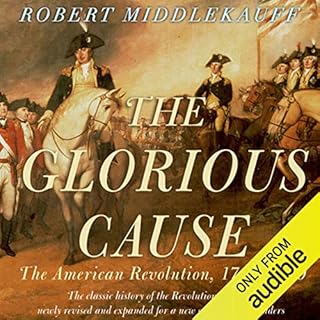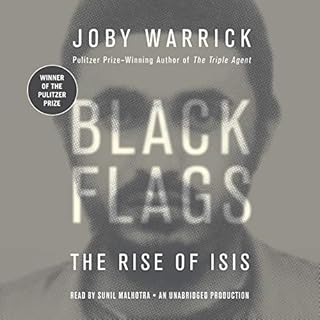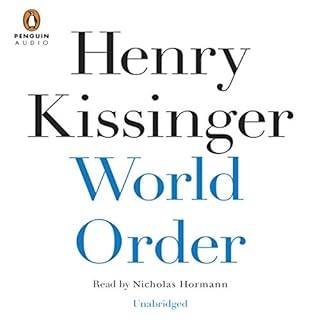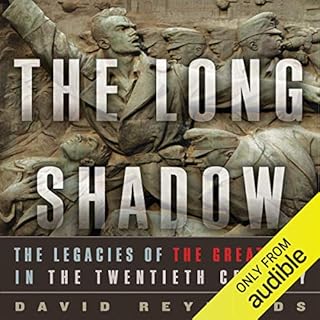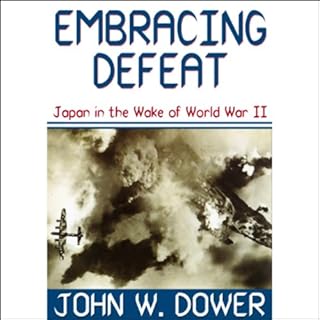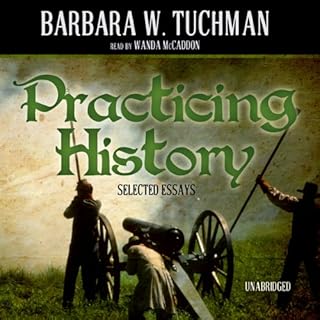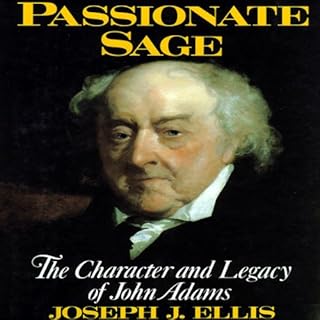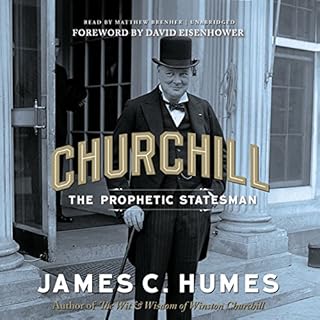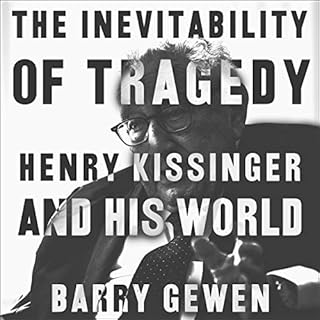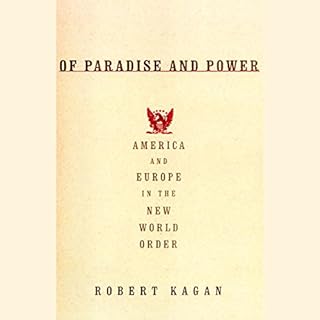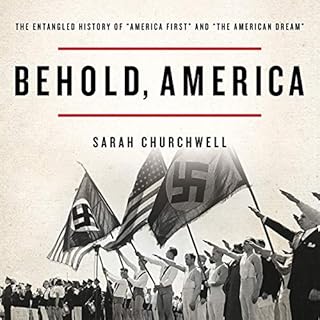
Reappraisals
Reflections on the Forgotten 20th Century
Failed to add items
Add to Cart failed.
Add to Wish List failed.
Remove from wishlist failed.
Adding to library failed
Follow podcast failed
Unfollow podcast failed
 Prime members: New to Audible?
Prime members: New to Audible?Get 2 free audiobooks during trial.
Buy for $21.80
No default payment method selected.
We are sorry. We are not allowed to sell this product with the selected payment method
-
Narrated by:
-
James Adams
-
By:
-
Tony Judt
About this listen
In less than a generation, the headlong advance of globalization has altered structures of thought that had been essentially unchanged since the European industrial revolution. As a result, we have lost touch with a century of social thought and socially motivated activism. In the 24 essays in Reappraisals, Judt resurrects the key aspects of the world we have lost to remind us how important they still are to us now and to our future.
©2008 Tony Judt (P)2008 Blackstone Audio, Inc.Listeners also enjoyed...
-
Bloodlands
- Europe Between Hitler and Stalin
- By: Timothy Snyder
- Narrated by: Ralph Cosham
- Length: 19 hrs and 14 mins
- Unabridged
-
Overall5 out of 5 stars 1,384
-
Performance4.5 out of 5 stars 1,173
-
Story5 out of 5 stars 1,171
Bloodlands is a new kind of European history, presenting the mass murders committed by the Nazi and Stalinist regimes as two aspects of a single history, in the time and place where they occurred: between Germany and Russia, when Hitler and Stalin both held power. Assiduously researched, deeply humane, and utterly definitive, Bloodlands will be required listening for anyone seeking to understand the central tragedy of modern history.
-
5 out of 5 stars
-
a warning for the future
- By judith on 11-06-19
By: Timothy Snyder
-
Collapse
- The Fall of the Soviet Union
- By: Vladislav M. Zubok
- Narrated by: David de Vries
- Length: 23 hrs and 50 mins
- Unabridged
-
Overall4.5 out of 5 stars 430
-
Performance5 out of 5 stars 371
-
Story4.5 out of 5 stars 369
In 1945, the Soviet Union controlled half of Europe and was a founding member of the United Nations. By 1991, it had an army four million strong, 5,000 nuclear-tipped missiles, and was the second biggest producer of oil in the world. But soon afterward, the union sank into an economic crisis and was torn apart by nationalist separatism. Its collapse was one of the seismic shifts of the 20th century.
-
4 out of 5 stars
-
Hopefully Not Prescient
- By Joshua on 01-29-22
-
The Road to Unfreedom
- Russia, Europe, America
- By: Timothy Snyder
- Narrated by: Timothy Snyder
- Length: 10 hrs and 10 mins
- Unabridged
-
Overall4.5 out of 5 stars 1,505
-
Performance5 out of 5 stars 1,302
-
Story5 out of 5 stars 1,295
With the end of the Cold War, the victory of liberal democracy was thought to be absolute. Observers declared the end of history, confident in a peaceful, globalized future. But we now know this to be premature. Authoritarianism first returned in Russia, as Putin developed a political system dedicated solely to the consolidation and exercise of power. In the last six years, it has creeped from east to west as nationalism inflames Europe, abetted by Russian propaganda and cyberwarfare.
-
5 out of 5 stars
-
A Key Understanding of Modern Politics
- By Richard Keohane on 04-08-18
By: Timothy Snyder
-
The World of Yesterday
- Memoirs of a European
- By: Stefan Zweig, Anthea Bell - translator
- Narrated by: David Horovitch
- Length: 17 hrs and 50 mins
- Unabridged
-
Overall5 out of 5 stars 718
-
Performance5 out of 5 stars 634
-
Story5 out of 5 stars 635
Stefan Zweig's memoir, The World of Yesterday, recalls the golden age of prewar Europe - its seeming permanence, its promise and its devastating fall with the onset of two world wars. Zweig's passionate, evocative prose paints a stunning portrait of an era that danced brilliantly on the brink of extinction. It is an unusually humane account of Europe from the closing years of the 19th century through to World War II, seen through the eyes of one of the most famous writers of his era.
-
5 out of 5 stars
-
Lucidity whilst Civilization reverts to barbarism
- By none on 06-25-17
By: Stefan Zweig, and others
-
American Midnight
- The Great War, a Violent Peace, and Democracy’s Forgotten Crisis
- By: Adam Hochschild
- Narrated by: Jonathan Todd Ross
- Length: 15 hrs and 6 mins
- Unabridged
-
Overall4.5 out of 5 stars 395
-
Performance4.5 out of 5 stars 337
-
Story4.5 out of 5 stars 337
From legendary historian Adam Hochschild, a groundbreaking reassessment of the overlooked but startlingly resonant period between World War I and the Roaring Twenties, when the foundations of American democracy were threated by war, pandemic, and violence fueled by battles over race, immigration, and the rights of labor
-
5 out of 5 stars
-
Disturbing yet Reassuring
- By Sams95 on 11-18-22
By: Adam Hochschild
-
The Origins of Political Order: From Prehuman Times to the French Revolution
- By: Francis Fukuyama
- Narrated by: Jonathan Davis
- Length: 22 hrs and 34 mins
- Unabridged
-
Overall4.5 out of 5 stars 2,913
-
Performance4.5 out of 5 stars 2,488
-
Story4.5 out of 5 stars 2,465
Virtually all human societies were once organized tribally, yet over time most developed new political institutions which included a central state that could keep the peace and uniform laws that applied to all citizens. Some went on to create governments that were accountable to their constituents. We take these institutions for granted, but they are absent or are unable to perform in many of today’s developing countries—with often disastrous consequences for the rest of the world.
-
3 out of 5 stars
-
Few forests, but lots of trees
- By Steve Pagano on 10-05-15
By: Francis Fukuyama
-
Bloodlands
- Europe Between Hitler and Stalin
- By: Timothy Snyder
- Narrated by: Ralph Cosham
- Length: 19 hrs and 14 mins
- Unabridged
-
Overall5 out of 5 stars 1,384
-
Performance4.5 out of 5 stars 1,173
-
Story5 out of 5 stars 1,171
Bloodlands is a new kind of European history, presenting the mass murders committed by the Nazi and Stalinist regimes as two aspects of a single history, in the time and place where they occurred: between Germany and Russia, when Hitler and Stalin both held power. Assiduously researched, deeply humane, and utterly definitive, Bloodlands will be required listening for anyone seeking to understand the central tragedy of modern history.
-
5 out of 5 stars
-
a warning for the future
- By judith on 11-06-19
By: Timothy Snyder
-
Collapse
- The Fall of the Soviet Union
- By: Vladislav M. Zubok
- Narrated by: David de Vries
- Length: 23 hrs and 50 mins
- Unabridged
-
Overall4.5 out of 5 stars 430
-
Performance5 out of 5 stars 371
-
Story4.5 out of 5 stars 369
In 1945, the Soviet Union controlled half of Europe and was a founding member of the United Nations. By 1991, it had an army four million strong, 5,000 nuclear-tipped missiles, and was the second biggest producer of oil in the world. But soon afterward, the union sank into an economic crisis and was torn apart by nationalist separatism. Its collapse was one of the seismic shifts of the 20th century.
-
4 out of 5 stars
-
Hopefully Not Prescient
- By Joshua on 01-29-22
-
The Road to Unfreedom
- Russia, Europe, America
- By: Timothy Snyder
- Narrated by: Timothy Snyder
- Length: 10 hrs and 10 mins
- Unabridged
-
Overall4.5 out of 5 stars 1,505
-
Performance5 out of 5 stars 1,302
-
Story5 out of 5 stars 1,295
With the end of the Cold War, the victory of liberal democracy was thought to be absolute. Observers declared the end of history, confident in a peaceful, globalized future. But we now know this to be premature. Authoritarianism first returned in Russia, as Putin developed a political system dedicated solely to the consolidation and exercise of power. In the last six years, it has creeped from east to west as nationalism inflames Europe, abetted by Russian propaganda and cyberwarfare.
-
5 out of 5 stars
-
A Key Understanding of Modern Politics
- By Richard Keohane on 04-08-18
By: Timothy Snyder
-
The World of Yesterday
- Memoirs of a European
- By: Stefan Zweig, Anthea Bell - translator
- Narrated by: David Horovitch
- Length: 17 hrs and 50 mins
- Unabridged
-
Overall5 out of 5 stars 718
-
Performance5 out of 5 stars 634
-
Story5 out of 5 stars 635
Stefan Zweig's memoir, The World of Yesterday, recalls the golden age of prewar Europe - its seeming permanence, its promise and its devastating fall with the onset of two world wars. Zweig's passionate, evocative prose paints a stunning portrait of an era that danced brilliantly on the brink of extinction. It is an unusually humane account of Europe from the closing years of the 19th century through to World War II, seen through the eyes of one of the most famous writers of his era.
-
5 out of 5 stars
-
Lucidity whilst Civilization reverts to barbarism
- By none on 06-25-17
By: Stefan Zweig, and others
-
American Midnight
- The Great War, a Violent Peace, and Democracy’s Forgotten Crisis
- By: Adam Hochschild
- Narrated by: Jonathan Todd Ross
- Length: 15 hrs and 6 mins
- Unabridged
-
Overall4.5 out of 5 stars 395
-
Performance4.5 out of 5 stars 337
-
Story4.5 out of 5 stars 337
From legendary historian Adam Hochschild, a groundbreaking reassessment of the overlooked but startlingly resonant period between World War I and the Roaring Twenties, when the foundations of American democracy were threated by war, pandemic, and violence fueled by battles over race, immigration, and the rights of labor
-
5 out of 5 stars
-
Disturbing yet Reassuring
- By Sams95 on 11-18-22
By: Adam Hochschild
-
The Origins of Political Order: From Prehuman Times to the French Revolution
- By: Francis Fukuyama
- Narrated by: Jonathan Davis
- Length: 22 hrs and 34 mins
- Unabridged
-
Overall4.5 out of 5 stars 2,913
-
Performance4.5 out of 5 stars 2,488
-
Story4.5 out of 5 stars 2,465
Virtually all human societies were once organized tribally, yet over time most developed new political institutions which included a central state that could keep the peace and uniform laws that applied to all citizens. Some went on to create governments that were accountable to their constituents. We take these institutions for granted, but they are absent or are unable to perform in many of today’s developing countries—with often disastrous consequences for the rest of the world.
-
3 out of 5 stars
-
Few forests, but lots of trees
- By Steve Pagano on 10-05-15
By: Francis Fukuyama
-
Pedagogy of the Oppressed: 50th Anniversary Edition
- By: Paulo Freire, Myra Bergman Ramos - translator, Donaldo Macedo - foreword, and others
- Narrated by: Dennis Kleinman
- Length: 7 hrs and 41 mins
- Unabridged
-
Overall4.5 out of 5 stars 479
-
Performance4.5 out of 5 stars 386
-
Story4.5 out of 5 stars 381
First published in Portuguese in 1968, Pedagogy of the Oppressed was translated and published in English in 1970. Paulo Freire's work has helped to empower countless people throughout the world and has taken on special urgency in the United States and Western Europe, where the creation of a permanent underclass among the underprivileged and minorities in cities and urban centers is ongoing. This 50th anniversary edition includes an updated introduction by Donaldo Macedo, a new afterword by Ira Shor, and many inspirational interviews.
-
3 out of 5 stars
-
Not easy listening
- By Berel Dov Lerner on 02-20-19
By: Paulo Freire, and others
-
A Savage War of Peace
- Algeria 1954-1962
- By: Alistair Horne
- Narrated by: James Adams
- Length: 29 hrs and 56 mins
- Unabridged
-
Overall4.5 out of 5 stars 415
-
Performance4.5 out of 5 stars 298
-
Story4.5 out of 5 stars 294
The Algerian War lasted from 1954 to 1962. It caused the fall of six French governments, led to the collapse of the Fourth Republic, and came close to provoking a civil war on French soil. More than a million Muslim Algerians died in the conflict, and as many European settlers were driven into exile. From the perspective of half a century, it looks less like the last colonial war than the first postmodern one.
-
5 out of 5 stars
-
Excellent history of France's Viet Nam
- By David on 04-10-16
By: Alistair Horne
-
Russia at War, 1941–1945
- A History
- By: Alexander Werth, Nicolas Werth - foreword
- Narrated by: Derek Perkins
- Length: 38 hrs and 27 mins
- Unabridged
-
Overall5 out of 5 stars 93
-
Performance5 out of 5 stars 84
-
Story5 out of 5 stars 83
In 1941, Russian-born British journalist Alexander Werth observed the unfolding of the Soviet-German conflict with his own eyes. What followed was the widely acclaimed book, Russia at War, first printed in 1964. At once a history of facts, a collection of interviews, and a document of the human condition, Russia at War is a stunning, modern classic that chronicles the savagery and struggles on Russian soil during the most incredible military conflict in modern history.
-
5 out of 5 stars
-
Simply Astonishing
- By Nicholas Robinson on 02-28-22
By: Alexander Werth, and others
-
The Big Myth
- How American Business Taught Us to Loathe Government and Love the Free Market
- By: Naomi Oreskes, Erik M. Conway
- Narrated by: Liza Seneca
- Length: 21 hrs and 27 mins
- Unabridged
-
Overall4.5 out of 5 stars 86
-
Performance4.5 out of 5 stars 74
-
Story4.5 out of 5 stars 74
In the early 20th century, business elites, trade associations, wealthy powerbrokers, and media allies set out to build a new American orthodoxy: down with 'big government' and up with unfettered markets. With startling archival evidence, Oreskes and Conway document campaigns to rewrite textbooks, combat unions, and defend child labor.
-
5 out of 5 stars
-
Refuting the Chicago School
- By Todd W. Laveen on 06-01-23
By: Naomi Oreskes, and others
-
A Brief History of Equality
- By: Thomas Piketty
- Narrated by: Fred Sanders
- Length: 8 hrs and 43 mins
- Unabridged
-
Overall4.5 out of 5 stars 131
-
Performance4.5 out of 5 stars 112
-
Story4.5 out of 5 stars 112
The world’s leading economist of inequality presents a short but sweeping and surprisingly optimistic history of human progress toward equality despite crises, disasters, and backsliding, a perfect introduction to the ideas developed in his monumental earlier books.
-
5 out of 5 stars
-
Excellent, more accessable, contribution.
- By P. Dean on 09-30-22
By: Thomas Piketty
-
The Glorious Cause: The American Revolution: 1763-1789
- By: Robert Middlekauff
- Narrated by: Robert Fass
- Length: 26 hrs and 56 mins
- Unabridged
-
Overall4.5 out of 5 stars 1,304
-
Performance4.5 out of 5 stars 1,105
-
Story4.5 out of 5 stars 1,100
The first book to appear in the illustrious Oxford History of the United States, this critically-acclaimed volume - a finalist for the Pulitzer Prize - offers an unsurpassed history of the Revolutionary War and the birth of the American republic.
-
4 out of 5 stars
-
Strong History Rich With Behind The Scenes Details
- By John on 10-06-11
-
On Tyranny (Expanded Audio Edition)
- Updated with Twenty New Lessons from Russia's War on Ukraine
- By: Timothy Snyder
- Narrated by: Timothy Snyder
- Length: 9 hrs and 45 mins
- Unabridged
-
Overall5 out of 5 stars 491
-
Performance5 out of 5 stars 429
-
Story5 out of 5 stars 424
In this exclusive audiobook edition, which includes eight hours of new content, Snyder combines the original essays from On Tyranny with twenty new lessons that answer the questions everyone is asking about this war. With forays into history, he clarifies the causes of the Russian invasion and the meaning of Ukrainian resistance, and explains the war's connections to threats to democracy here in the United States and around the world. Linking past and present, speaking only from notes, he guides the listener into the larger moral universe of On Tyranny.
-
5 out of 5 stars
-
Best book of the decade
- By Chuck on 04-21-22
By: Timothy Snyder
-
The Second World War: Milestones to Disaster
- By: Winston Churchill
- Narrated by: Christian Rodska
- Length: 10 hrs and 42 mins
- Unabridged
-
Overall4.5 out of 5 stars 3,199
-
Performance4.5 out of 5 stars 2,395
-
Story4.5 out of 5 stars 2,379
Churchill's history of the Second World War is, and will remain, the definitive work. Lucid, dramatic, remarkable for its breadth and sweep and for its sense of personal involvement, it is universally acknowledged as a magnificent reconstruction.
-
5 out of 5 stars
-
Brilliant! Only Churchill could have done this.
- By John M on 10-30-08
-
Black Flags
- The Rise of ISIS
- By: Joby Warrick
- Narrated by: Sunil Malhotra
- Length: 13 hrs and 33 mins
- Unabridged
-
Overall4.5 out of 5 stars 2,786
-
Performance4.5 out of 5 stars 2,435
-
Story4.5 out of 5 stars 2,431
In a thrilling dramatic narrative, awarded the 2016 Pulitzer Prize for General Nonfiction, Joby Warrick traces how the strain of militant Islam behind ISIS first arose in a remote Jordanian prison and spread with the unwitting aid of two American presidents.
-
4 out of 5 stars
-
So much learned
- By mike flavin on 02-11-16
By: Joby Warrick
-
Israel
- A Concise History of a Nation Reborn
- By: Daniel Gordis
- Narrated by: Fred Sanders
- Length: 16 hrs and 19 mins
- Unabridged
-
Overall4.5 out of 5 stars 1,341
-
Performance4.5 out of 5 stars 1,185
-
Story4.5 out of 5 stars 1,176
Israel is a tiny state, and yet it has captured the world's attention, aroused its imagination, and, lately, been the object of its opprobrium. Why does such a small country speak to so many global concerns? More pressingly: Why does Israel make the decisions it does? And what lies in its future? We cannot answer these questions until we understand Israel's people and the questions and conflicts, the hopes and desires, that have animated their conversations and actions.
-
5 out of 5 stars
-
Excellent, mildly but honestly biased, terrible narration
- By Schaq on 04-01-17
By: Daniel Gordis
-
World Order
- By: Henry Kissinger
- Narrated by: Nicholas Hormann
- Length: 14 hrs and 9 mins
- Unabridged
-
Overall4.5 out of 5 stars 1,376
-
Performance4.5 out of 5 stars 1,169
-
Story4.5 out of 5 stars 1,162
Henry Kissinger offers in World Order a deep meditation on the roots of international harmony and global disorder. Drawing on his experience as one of the foremost statesmen of the modern era Kissinger now reveals his analysis of the ultimate challenge for the 21st century: How to build a shared international order in a world of divergent historical perspectives, violent conflict, proliferating technology, and ideological extremism.
-
4 out of 5 stars
-
More retrospective than future oriented
- By Scott on 10-23-14
By: Henry Kissinger
-
A Better War
- The Unexamined Victories and Final Tragedy of America's Last Years in Vietnam
- By: Lewis Sorley
- Narrated by: Basil Sands
- Length: 13 hrs and 59 mins
- Unabridged
-
Overall4.5 out of 5 stars 78
-
Performance4 out of 5 stars 69
-
Story4.5 out of 5 stars 69
Neglected by scholars and journalists alike, the years of conflict in Vietnam from 1968 to 1975 offer surprises not only about how the war was fought, but about what was achieved. Drawing on authoritative materials not previously available, including thousands of hours of tape-recorded allied councils of war, award-winning military historian Lewis Sorley has given us what has long been needed - an insightful, factual, and superbly documented history of these important years.
-
5 out of 5 stars
-
A thought-provoking history of the war 68-75
- By Rodney W. Schmisseur on 02-05-14
By: Lewis Sorley
Critic reviews
Related to this topic
-
The Long Shadow
- The Legacies of the Great War in the Twentieth Century
- By: David Reynolds
- Narrated by: John FitzGibbon
- Length: 19 hrs and 55 mins
- Unabridged
-
Overall4 out of 5 stars 89
-
Performance4 out of 5 stars 80
-
Story4 out of 5 stars 81
One of the most violent conflicts in the history of civilization, World War I has been strangely forgotten in American culture. It has become a ghostly war fought in a haze of memory, often seen merely as a distant preamble to World War II. In The Long Shadow critically-acclaimed historian David Reynolds seeks to broaden our vision by assessing the impact of the Great War across the twentieth century. He shows how events in that turbulent century—particularly World War II, the Cold War, and the collapse of Communism—shaped and reshaped attitudes to 1914–18.
-
3 out of 5 stars
-
The World According to David Reynolds (feat. WWI)
- By Steve on 02-26-15
By: David Reynolds
-
The Anatomy of Fascism
- By: Robert O. Paxton
- Narrated by: Arthur Morey
- Length: 11 hrs and 2 mins
- Unabridged
-
Overall4.5 out of 5 stars 1,231
-
Performance4.5 out of 5 stars 1,046
-
Story4.5 out of 5 stars 1,030
What is fascism? By focusing on the concrete, what the fascists did rather than what they said, the esteemed historian Robert O. Paxton answers this question for the first time. From the first violent uniformed bands beating up "enemies of the state", through Mussolini's rise to power, to Germany's fascist radicalization in World War II, Paxton shows clearly why fascists came to power in some countries and not others.
-
5 out of 5 stars
-
Great book for getting a clearer idea of fascism
- By Amazon Customer on 11-02-17
By: Robert O. Paxton
-
Karl Marx: A Nineteenth-Century Life
- By: Jonathan Sperber
- Narrated by: Kevin Stillwell
- Length: 22 hrs and 49 mins
- Unabridged
-
Overall4.5 out of 5 stars 189
-
Performance4.5 out of 5 stars 161
-
Story4.5 out of 5 stars 161
Returning Marx to the Victorian confines of the 19th century, Jonathan Sperber, one of the United States' leading European historians, challenges many of our misconceptions of this political firebrand turned London journalist. In this deeply humanizing portrait, Marx no longer is the Olympian soothsayer, divining the dialectical imperatives of human history, but a scholar-activist whose revolutionary Weltanschauung was closer to Robespierre's than to those of 20th-century Marxists.
-
4 out of 5 stars
-
Informative intellectual biography, poor reading
- By anonymous on 10-25-13
By: Jonathan Sperber
-
Embracing Defeat
- By: John W. Dower
- Narrated by: Edward Lewis
- Length: 21 hrs and 38 mins
- Unabridged
-
Overall4 out of 5 stars 430
-
Performance3.5 out of 5 stars 295
-
Story4 out of 5 stars 300
This illuminating study explores the ways in which the shattering defeat of the Japanese in World War II, followed by over six years of American military occupation, affected every level of Japanese society. The author describes the countless ways in which the Japanese met the challenge of "starting over", from top-level manipulations concerning the fate of Emperor Hirohito to the hopes, fears, and activities of ordinary men and women in every walk of life.
-
4 out of 5 stars
-
Pulitzer Prize Winner!
- By KF on 10-09-07
By: John W. Dower
-
Practicing History
- Selected Essays
- By: Barbara W. Tuchman
- Narrated by: Wanda McCaddon
- Length: 12 hrs and 51 mins
- Unabridged
-
Overall4.5 out of 5 stars 122
-
Performance4.5 out of 5 stars 107
-
Story4.5 out of 5 stars 105
Master historian Barbara W. Tuchman looks at history in a unique way and draws lessons from what she sees. This accessible introduction to the subject of history offers striking insights into America's past and present, trenchant observations on the international scene, and thoughtful pieces on the historian's role. Here is a splendid body of work, the story of a lifetime spent "practicing history".
-
2 out of 5 stars
-
Barbara Tuchman fan faced with reality
- By J. Whittle on 09-27-18
-
The Return of Marco Polo's World
- War, Strategy, and American Interests in the Twenty-First Century
- By: Robert D. Kaplan
- Narrated by: Eric Jason Martin
- Length: 9 hrs and 24 mins
- Unabridged
-
Overall4.5 out of 5 stars 276
-
Performance4.5 out of 5 stars 249
-
Story4.5 out of 5 stars 246
Drawing on decades of firsthand experience as a foreign correspondent and military embed for The Atlantic, as well as encounters with preeminent realist thinkers, Kaplan outlines the timeless principles that should shape America's role in a turbulent world: a respect for the limits of Western-style democracy; a delineation between American interests and American values; an awareness of the psychological toll of warfare; a projection of power via a strong navy; and more.
-
4 out of 5 stars
-
Essays on the Region of the Silk Road
- By Jeff Beardsley on 05-19-18
By: Robert D. Kaplan
-
The Long Shadow
- The Legacies of the Great War in the Twentieth Century
- By: David Reynolds
- Narrated by: John FitzGibbon
- Length: 19 hrs and 55 mins
- Unabridged
-
Overall4 out of 5 stars 89
-
Performance4 out of 5 stars 80
-
Story4 out of 5 stars 81
One of the most violent conflicts in the history of civilization, World War I has been strangely forgotten in American culture. It has become a ghostly war fought in a haze of memory, often seen merely as a distant preamble to World War II. In The Long Shadow critically-acclaimed historian David Reynolds seeks to broaden our vision by assessing the impact of the Great War across the twentieth century. He shows how events in that turbulent century—particularly World War II, the Cold War, and the collapse of Communism—shaped and reshaped attitudes to 1914–18.
-
3 out of 5 stars
-
The World According to David Reynolds (feat. WWI)
- By Steve on 02-26-15
By: David Reynolds
-
The Anatomy of Fascism
- By: Robert O. Paxton
- Narrated by: Arthur Morey
- Length: 11 hrs and 2 mins
- Unabridged
-
Overall4.5 out of 5 stars 1,231
-
Performance4.5 out of 5 stars 1,046
-
Story4.5 out of 5 stars 1,030
What is fascism? By focusing on the concrete, what the fascists did rather than what they said, the esteemed historian Robert O. Paxton answers this question for the first time. From the first violent uniformed bands beating up "enemies of the state", through Mussolini's rise to power, to Germany's fascist radicalization in World War II, Paxton shows clearly why fascists came to power in some countries and not others.
-
5 out of 5 stars
-
Great book for getting a clearer idea of fascism
- By Amazon Customer on 11-02-17
By: Robert O. Paxton
-
Karl Marx: A Nineteenth-Century Life
- By: Jonathan Sperber
- Narrated by: Kevin Stillwell
- Length: 22 hrs and 49 mins
- Unabridged
-
Overall4.5 out of 5 stars 189
-
Performance4.5 out of 5 stars 161
-
Story4.5 out of 5 stars 161
Returning Marx to the Victorian confines of the 19th century, Jonathan Sperber, one of the United States' leading European historians, challenges many of our misconceptions of this political firebrand turned London journalist. In this deeply humanizing portrait, Marx no longer is the Olympian soothsayer, divining the dialectical imperatives of human history, but a scholar-activist whose revolutionary Weltanschauung was closer to Robespierre's than to those of 20th-century Marxists.
-
4 out of 5 stars
-
Informative intellectual biography, poor reading
- By anonymous on 10-25-13
By: Jonathan Sperber
-
Embracing Defeat
- By: John W. Dower
- Narrated by: Edward Lewis
- Length: 21 hrs and 38 mins
- Unabridged
-
Overall4 out of 5 stars 430
-
Performance3.5 out of 5 stars 295
-
Story4 out of 5 stars 300
This illuminating study explores the ways in which the shattering defeat of the Japanese in World War II, followed by over six years of American military occupation, affected every level of Japanese society. The author describes the countless ways in which the Japanese met the challenge of "starting over", from top-level manipulations concerning the fate of Emperor Hirohito to the hopes, fears, and activities of ordinary men and women in every walk of life.
-
4 out of 5 stars
-
Pulitzer Prize Winner!
- By KF on 10-09-07
By: John W. Dower
-
Practicing History
- Selected Essays
- By: Barbara W. Tuchman
- Narrated by: Wanda McCaddon
- Length: 12 hrs and 51 mins
- Unabridged
-
Overall4.5 out of 5 stars 122
-
Performance4.5 out of 5 stars 107
-
Story4.5 out of 5 stars 105
Master historian Barbara W. Tuchman looks at history in a unique way and draws lessons from what she sees. This accessible introduction to the subject of history offers striking insights into America's past and present, trenchant observations on the international scene, and thoughtful pieces on the historian's role. Here is a splendid body of work, the story of a lifetime spent "practicing history".
-
2 out of 5 stars
-
Barbara Tuchman fan faced with reality
- By J. Whittle on 09-27-18
-
The Return of Marco Polo's World
- War, Strategy, and American Interests in the Twenty-First Century
- By: Robert D. Kaplan
- Narrated by: Eric Jason Martin
- Length: 9 hrs and 24 mins
- Unabridged
-
Overall4.5 out of 5 stars 276
-
Performance4.5 out of 5 stars 249
-
Story4.5 out of 5 stars 246
Drawing on decades of firsthand experience as a foreign correspondent and military embed for The Atlantic, as well as encounters with preeminent realist thinkers, Kaplan outlines the timeless principles that should shape America's role in a turbulent world: a respect for the limits of Western-style democracy; a delineation between American interests and American values; an awareness of the psychological toll of warfare; a projection of power via a strong navy; and more.
-
4 out of 5 stars
-
Essays on the Region of the Silk Road
- By Jeff Beardsley on 05-19-18
By: Robert D. Kaplan
-
Bully of Asia
- By: Steven W. Mosher
- Narrated by: Al Kessel
- Length: 11 hrs and 6 mins
- Unabridged
-
Overall4.5 out of 5 stars 151
-
Performance4.5 out of 5 stars 141
-
Story4.5 out of 5 stars 140
The signs are everywhere. China unilaterally claims the entire South China Sea as sovereign territory, then builds artificial islands to bolster its claim. It suddenly activates an air defense identification zone over the East China Sea, and threatens to down any aircraft that does not report its position. It builds roads into Indian territory, then redraws the maps to show that it is actually Chinese territory. The People's Republic under President Xi Jinping is quickly becoming The Bully of Asia.
-
5 out of 5 stars
-
Eye opening, up to date
- By Silomi on 01-01-19
By: Steven W. Mosher
-
Passionate Sage
- The Character and Legacy of John Adams
- By: Joseph J. Ellis
- Narrated by: Tom Parker
- Length: 8 hrs and 36 mins
- Unabridged
-
Overall4.5 out of 5 stars 275
-
Performance4.5 out of 5 stars 243
-
Story4.5 out of 5 stars 241
John Adams, one of the Founding Fathers of our nation and its second president, spent nearly the last third of his life in retirement, grappling with contradictory views of his place in history and fearing his reputation would not fare well in the generations after his death. And indeed, future generations did slight him, elevating Jefferson and Madison to lofty heights while Adams remained way back in the second tier.
-
3 out of 5 stars
-
Stays true to Audible's description
- By Neil on 10-24-09
By: Joseph J. Ellis
-
Churchill
- The Prophetic Statesman
- By: James C. Humes
- Narrated by: Matthew Brenher
- Length: 6 hrs and 8 mins
- Unabridged
-
Overall4.5 out of 5 stars 27
-
Performance5 out of 5 stars 25
-
Story4.5 out of 5 stars 25
James C. Humes reveals the astonishingly accurate predictions of Britain's most famous prime minister and how his critics' perceptions of them shaped his political career. Who could have foreseen the start of World War I twenty-five years before the assassination of a Serbian archduke plunged Europe into war? Who could have predicted the rise of al-Qaeda nearly eight decades before anyone had heard of Osama bin Laden? Winston Churchill did.
-
5 out of 5 stars
-
The voice in the wilderness--Are we listening yet?
- By Jean on 12-16-12
By: James C. Humes
-
The End of Europe
- Dictators, Demagogues, and the Coming Dark Age
- By: James Kirchick
- Narrated by: Eric Martin
- Length: 10 hrs and 19 mins
- Unabridged
-
Overall4.5 out of 5 stars 103
-
Performance4.5 out of 5 stars 91
-
Story4 out of 5 stars 93
Once the world's bastion of liberal, democratic values, Europe is now having to confront demons it thought it had laid to rest. The old pathologies of anti-Semitism, populist nationalism, and territorial aggression are threatening to tear the European postwar consensus apart. Based on extensive firsthand reporting, this book is a provocative, disturbing look at a continent in unexpected crisis.
-
1 out of 5 stars
-
Disappointing, Silly And Really Childish Book.
- By Eireannach on 04-14-17
By: James Kirchick
-
The Inevitability of Tragedy
- Henry Kissinger and His World
- By: Barry Gewen
- Narrated by: Paul Woodson
- Length: 18 hrs and 46 mins
- Unabridged
-
Overall4.5 out of 5 stars 75
-
Performance4.5 out of 5 stars 56
-
Story4.5 out of 5 stars 56
Few public officials have provoked such intense controversy as Henry Kissinger. During his time in the Nixon and Ford administrations, he came to be admired and hated in equal measure. Notoriously, he believed that foreign affairs ought to be based primarily on the power relationships of a situation, not simply on ethics. He went so far as to argue that under certain circumstances America had to protect its national interests even if that meant repressing other countries' attempts at democracy.
-
3 out of 5 stars
-
Interesting but rambles
- By K on 02-17-21
By: Barry Gewen
-
American Sphinx
- The Character of Thomas Jefferson
- By: Joseph J. Ellis
- Narrated by: Susan O'Malley
- Length: 15 hrs
- Unabridged
-
Overall4.5 out of 5 stars 88
-
Performance4.5 out of 5 stars 78
-
Story4.5 out of 5 stars 78
For a man who insisted that life on the public stage was not what he had in mind, Thomas Jefferson certainly spent a great deal of time in the spotlight. Historian Joseph J. Ellis sifts the facts shrewdly from the legends and the rumors, treading a path between vilification and hero worship in order to formulate a plausible portrait of the man who still today "hover[s] over the political scene like one of those dirigibles cruising above a crowded football stadium, flashing words of inspiration to both teams".
-
2 out of 5 stars
-
Jefferson, As Seen By Big Government
- By FredZarguna on 06-01-23
By: Joseph J. Ellis
-
Of Paradise and Power
- America and Europe in the New World Order
- By: Robert Kagan
- Narrated by: Robertson Dean
- Length: 2 hrs and 45 mins
- Unabridged
-
Overall4 out of 5 stars 93
-
Performance4.5 out of 5 stars 38
-
Story4 out of 5 stars 38
When historians want to find out about the ideas that motivated American foreign policy in the early years of the twenty-first century, they would do well to read this book. Robert Kagan has formally set out a case for unilateralism on the part of the United States, as opposed to the multilateralism now characteristic of Europe. Kagan believes that the United States can disregard a weak Europe, and have a free hand in pursuing its global interests.
-
5 out of 5 stars
-
Quick and pithy listen
- By Erik Fosshage on 01-14-04
By: Robert Kagan
-
The 10 Big Lies About America
- Combating Destructive Distortions About Our Nation
- By: Michael Medved
- Narrated by: Michael Medved
- Length: 10 hrs and 34 mins
- Unabridged
-
Overall4.5 out of 5 stars 98
-
Performance4.5 out of 5 stars 65
-
Story4.5 out of 5 stars 64
In this bold and brilliantly argued book, acclaimed author and talk-radio host Michael Medved zeroes in on 10 of the biggest fallacies that millions of Americans believe about our country - in spite of incontrovertible facts to the contrary. In The 10 Big Lies About America, Medved pinpoints the most pernicious pieces of America-bashing disinformation that pollute current debates about the economy, race, religion in politics, the Iraq war, and other contentious issues.
-
5 out of 5 stars
-
Truth
- By Dominique Bessette on 01-23-17
By: Michael Medved
-
Behold, America
- The Entangled History of "America First" and "the American Dream"
- By: Sarah Churchwell
- Narrated by: Anne Twomey
- Length: 11 hrs and 21 mins
- Unabridged
-
Overall4.5 out of 5 stars 76
-
Performance4.5 out of 5 stars 68
-
Story4.5 out of 5 stars 69
In Behold, America, Sarah Churchwell offers a surprising account of 20th-century Americans' fierce battle for the nation's soul. It follows the stories of two phrases - the "American dream" and "America First" - that once embodied opposing visions for America. Starting as a Republican motto before becoming a hugely influential isolationist slogan during World War I, America First was always closely linked with authoritarianism and white supremacy. The American dream, meanwhile, initially represented a broad vision of democratic and economic equality.
-
5 out of 5 stars
-
History we need to know
- By Caroline Pufalt on 12-09-18
By: Sarah Churchwell
-
Culture and Imperialism
- By: Edward Said
- Narrated by: Peter Ganim
- Length: 19 hrs and 59 mins
- Unabridged
-
Overall4.5 out of 5 stars 194
-
Performance4.5 out of 5 stars 154
-
Story4.5 out of 5 stars 157
A landmark work from the intellectually auspicious author of Orientalism, this book explores the long-overlooked connections between the Western imperial endeavor and the culture that both reflected and reinforced it. This classic study, the direct successor to Said's main work, is read by Peter Ganim ( Orientalism).
-
5 out of 5 stars
-
BRAVO, AUDIBLE!! WE NEED MORE SAID!! REAL BOOKS!!
- By AnthonyStevens on 02-27-11
By: Edward Said
-
How Civilizations Die (and Why Islam Is Dying Too)
- By: David Goldman
- Narrated by: Tom Weiner
- Length: 8 hrs and 52 mins
- Unabridged
-
Overall4 out of 5 stars 258
-
Performance4.5 out of 5 stars 227
-
Story4 out of 5 stars 226
Past and present civilizations failed and fail for many reasons, but the number-one predictor of a civilization’s survival is its sense of religion—or lack thereof. So argues David Goldman in How Civilizations Die (and Why Islam Is Dying Too). The strength of a civilization’s religion affects its purpose, its fertility rate, and ultimately, its fate, says Goldman—who then argues that, contrary to popular belief, Islamic countries are in the last throes of death while Christian America is in a position to flourish.
-
1 out of 5 stars
-
Pseudointellectual Clickbait
- By Sam on 12-22-20
By: David Goldman
-
On Anarchism
- By: Noam Chomsky, Nathan Schneider - introduction
- Narrated by: Eric Jason Martin
- Length: 4 hrs and 55 mins
- Unabridged
-
Overall4.5 out of 5 stars 715
-
Performance4.5 out of 5 stars 609
-
Story4.5 out of 5 stars 599
On Anarchism provides the reasoning behind Noam Chomsky's fearless lifelong questioning of the legitimacy of entrenched power. In these essays, Chomsky redeems one of the most maligned ideologies, anarchism, and places it at the foundation of his political thinking. Chomsky's anarchism is distinctly optimistic and egalitarian. Moreover, it is a living, evolving tradition that is situated in a historical lineage; Chomsky's anarchism emphasizes the power of collective, rather than individualist, action.
-
3 out of 5 stars
-
Hit and Miss
- By Jacob King on 06-18-14
By: Noam Chomsky, and others
What listeners say about Reappraisals
Average customer ratingsReviews - Please select the tabs below to change the source of reviews.
-
Overall5 out of 5 stars
- Tom
- 05-27-08
essential
wonderful full of thought and indispensible information
Something went wrong. Please try again in a few minutes.
You voted on this review!
You reported this review!
5 people found this helpful
-
Overall5 out of 5 stars
-
Performance5 out of 5 stars
-
Story5 out of 5 stars
- Stephen
- 07-02-15
Profound reflections on history and politics.
What did you love best about Reappraisals?
The late Tony Judt was the most eloquent, balanced and perceptive historian of modern Europe we had. He was also a uniquely well-informed and lucid political commentator on issues ranging from the Six-Day War to the ideal role of the state. Can't recommend this highly enough.
Something went wrong. Please try again in a few minutes.
You voted on this review!
You reported this review!
2 people found this helpful
-
Overall4 out of 5 stars
- Doug
- 10-26-09
A Deep Well of Information and Opinion
I wasn't familiar with Judt before reading this book, and I had only a passing knowledge of many of the featured people.
The essays seem somewhat Judeo-centric, but they are fascinating and they have introduced me to people and philosophies I'll enjoy pursuing.
The essays on the more recent time periods (newer than 2003) seemed hollow, considering the economic and political changes of the past 18 months. I enjoyed all the others.
Something went wrong. Please try again in a few minutes.
You voted on this review!
You reported this review!
2 people found this helpful
-
Overall4 out of 5 stars
-
Performance1 out of 5 stars
-
Story5 out of 5 stars
- alan
- 02-06-17
Irreplaceable
What did you love best about Reappraisals?
Brilliant analyses, mordant excoriations of the militarists self-justifying their Vietnam war, great critique of Israel
How could the performance have been better?
It's the wrong reader - the plummy British accent makes Judt sound like like a Mandarin, pronouncing disdainfully on mere mortals.His mispronounciation of all the Hebrew names compounds the tone of an authority impossible remote from his subjects.
Something went wrong. Please try again in a few minutes.
You voted on this review!
You reported this review!
2 people found this helpful
-
Overall5 out of 5 stars
-
Performance5 out of 5 stars
-
Story5 out of 5 stars
- Jeff Lacy
- 07-22-19
Exceptional. A pure intellectual gift. It makes one’s brain bloom.
Reading Tony Judy’s essays in REAPPRAISALS is an exceptional delight. These essays, more specifically reviews mostly from The New York Times Review of Books from the late 1990 through the 2000s, address a wide range of issues that Judt adds his intellectual insights. This was one of the most stimulating and enjoyable nonfiction works I have read recently. Additionally, James Adams adds his warm sophisticated British baritone for which it is well suited, well modulated with a pace that’s easy to follow and understand. Everything comes together in this book: clear and engaging writing, intellectually stimulating analysis and argument, and a well performed narration.
Something went wrong. Please try again in a few minutes.
You voted on this review!
You reported this review!
-
Overall5 out of 5 stars
-
Performance5 out of 5 stars
-
Story5 out of 5 stars
- KEVIN E FARRIS
- 07-03-22
Too brilliant!
Tony Judt has a supremely gifted mind and this book is spectacular. Revisiting the issues from across the century is a smart way at. A brilliant walk down memory lane with contemporary analysis. Mr. Judt makes the work very east ygy play.
A great book. In fact, it’s most definitely the most reflective of Mr. Judt’s endnote:
Something went wrong. Please try again in a few minutes.
You voted on this review!
You reported this review!
-
Overall4 out of 5 stars
-
Performance5 out of 5 stars
-
Story4 out of 5 stars
- John M Bryant
- 12-16-21
Uneven collection of book reviews
Surprised and disappointed that this was a collection of book reviews. Judt is excellent as always, however. Just makes for an oddly disjointed collection of thoughts, which the book’s blurb did not make clear.
Something went wrong. Please try again in a few minutes.
You voted on this review!
You reported this review!
-
Overall5 out of 5 stars
-
Performance5 out of 5 stars
-
Story4 out of 5 stars
- Louis
- 05-02-12
Superb. Insightful essays, Performance to match
Judt, a European-born New Yorker and academic, analyzes the failings of his fellow leftists in clear-eyed essays. There are 24 essays, most of which appeared as extended reviews in The New York Review of Books.
He blames the left for their unwillingness to acknowledge that the only examples of communist governments have all taken the form of dictatorships. He cites leftist intellectual willingness to make exceptions for The Greater Good and blindness to Stalin--even when presented with proof--and he blames his fellow leftist intellectuals for an unwillingness to consider that yes, there were communists in the US State Department, and that while McCarthy was wrong about everything else, he may have been right about this.
Judt was on a kibbutz during the Six Day War, when Jordan, Syria and Egypt moved to crush Israel. Israel won not by a shofar, but when the Egyptian air force was burned into the desert. He acknowledges the cost of Zionism--Israeli land gained is Arab land lost is peace lost--and he knows the answer is Land For Peace. In an essay on Edward Said, he talks about Palestinian weakness and ineptitude in face of Israeli duplicity, and later, the inevitable charges of anti-Semitism that follow criticism of the settlements, and the inability of American Jews to see Israel through the eyes of the rest of the world, and the Israeli's inability to create a country that can stand without America's help.
Judt is not perfect. There is some score-settling among fellow leftists that comes across as Paris cafe bickering.
In his review of William Bundy's "Tangled Web" he excoriates Nixon and Kissinger's destructive narcissistic personal foreign policy--cutting out State and CIA--lauds Shuttle Diplomacy, but doesn't see that they have the same roots. The opening to China is seen as brilliant in of itself, but Bundy (and Judt) take at face value the Soviet/Russian claim that the overtures to China had nothing to do with the Soviet summit and SALT treaty.
Finally, his review of "The Cold War: A New History" (2005) by John Lewis Gaddis (who won the 2012 Pulitzer Prize for Biography), is worth the price of the book. Gaddis's book is eviscerated as shallow and narrow, a jingoistic account of a victory that is an insight to American policymakers that made me wonder if the publisher wasn't FOX News Books. But Judt's view is European, and Gaddis's is American, and we return to the blind spot of the Left: nuclear war. Under the threat of mutually assured destruction, the Right races to the expedient self-serving simple choice, and everyone suffers.
Judt ends with the spectre haunting the West — the spectre of nationalism.
The performance is excellent. Judt's forté is France, so there is more than the usual mot juste. While it is normally just an affectation, like a pipe, pipe cleaner, tobacco, tobacco pouch, tamper and the outsized search for The Ashtray so we can Ring It Like A Schoolbell, in an audio book it transcends affectation to annoyance.
Something went wrong. Please try again in a few minutes.
You voted on this review!
You reported this review!
13 people found this helpful
-
Overall5 out of 5 stars
- James
- 05-16-10
give us more
Tony Judt is revealed to be one of the most thoughtful, incisive writers on the history and politics of the last 100 years. Let us have more of Tony.
Something went wrong. Please try again in a few minutes.
You voted on this review!
You reported this review!
1 person found this helpful
-
Overall2 out of 5 stars
-
Performance2 out of 5 stars
-
Story2 out of 5 stars
- Ann
- 08-04-11
Disappointed
following on from the excellent book on post war Europe, this niche story was a disappointment
Something went wrong. Please try again in a few minutes.
You voted on this review!
You reported this review!




